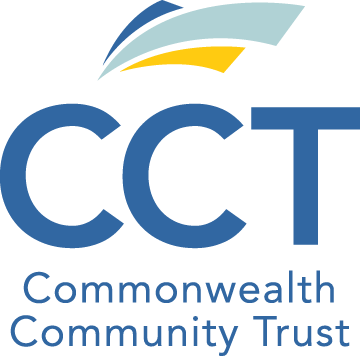Special Needs Trust Planning for the Future
By Joanne Marcus, MSW, President and CEO of Commonwealth Community Trust (CCT)
Dementia is costly, both financially and emotionally. If you or a loved one has been diagnosed with dementia, you are probably overwhelmed with the prospect of how to financially plan for the future. One option for managing finances is a pooled special needs trust (SNT). A pooled SNT is administered by a nonprofit organization. The organization makes decisions on how funds from the trust are disbursed on behalf of the trust Beneficiary, makes decisions on who invests the funds, fulfills reporting requirements to government agencies and stays abreast of changing regulations so that means-tested government benefits (like Medicaid and Supplemental Security Income (SSI) ) are not jeopardized.
Each Beneficiary’s funds are placed in an individual sub account. The cash assets from all sub accounts are then “pooled” together and invested as a group. Earnings based on the
beneficiary’s share of the principal are reinvested into each sub account. A financial record is maintained for each sub account that reflects all the activity in the account. Each beneficiary or their advocate has access to the financial information either electronically or by mail.
Most pooled trusts offer both First Party and Third Party SNTs. A First Party SNT is established with the Beneficiary’s own funds. A Third Party SNT is funded by a third party for the benefit of the individual with dementia or a family member with special needs.
A pooled special needs trust makes sense for multiple reasons. It allows one the opportunity to set aside funds that will enrich the quality of life for the Beneficiary. The beneficiary can benefit from trust administration services including investment and management. All disbursements are for the sole benefit of the Beneficiary. Pooling the funds reduces administrative fees and increases the principal for investment purposes. A pooled SNT will also protect eligibility for Medicaid and Supplemental Security Income in many instances; however, special planning is required for Beneficiaries over the age of 64 for whom Medicaid Long-term Care benefits may be needed.
It is strongly recommended that you consult with a Trust and Estates Attorney or Elder Law Attorney who can advise you on how a pooled special needs trust can benefit your situation. When appropriate, a SNT can give you a sense of well- being regarding your own, or your loved one’s, financial future while continuing to live life with quality and dignity.
Related Articles:
Nancy, Grandmother and Advocate of a CCT Beneficiary
"CCT has been wonderful in serving the financial needs of my grandson. They are always prompt in answering questions and suggesting how we can make something happen for him. He just turned 18 this year and we still plan on using this service." — Nancy, Grandmother and Advocate of a CCT Beneficiary

Holly, CCT Beneficiary
The first-person special needs trust, and the people who help manage the trusts, has been such a blessing. The combination has lifted a huge weight from my shoulders[.] — Holly, CCT Beneficiary
James, CCT Beneficiary
[I]t is people like you, who help those of us with disabilities which keeps us from living what would be “normal” lives, that is a blessing and gift that goes unseen, unheard of, and unrecognized. You make everyday tasks that most people take for granted but to me are frightening and debilitating and make them […]
Elaine, CCT Beneficiary
CCT has been a blessing and one of the smartest moves I’ve made. They are always there to help you with any questions you may have. I was able to purchase a new car and had work done on my house. I have a very blessed life, and CCT contributes to that[.] — Elaine, CCT […]
Grandmother of Beneficiary Kobe
"CCT made getting the wheelchair equip van we so much needed for our grandson the easiest purchase ever. Thank you CCT!!!" — Grandmother of Beneficiary Kobe
Rhonda, Mother and Advocate of a CCT Beneficiary
"CCT has been amazing. Very helpful with guiding us through this process." — Rhonda, Mother and Advocate of a CCT Beneficiary
Nancy, Grandmother and Advocate of a CCT Beneficiary
"CCT has been wonderful in serving the financial needs of my grandson. They are always prompt in answering questions and suggesting how we can make something happen for him. He just turned 18 this year and we still plan on using this service." — Nancy, Grandmother and Advocate of a CCT Beneficiary
Holly, CCT Beneficiary
The first-person special needs trust, and the people who help manage the trusts, has been such a blessing. The combination has lifted a huge weight from my shoulders[.] — Holly, CCT Beneficiary
CCT
Trusts
Professionals
Clients

*Disclaimer Statement: CCT is not a chartered bank or trust company, or depository institution. It is not authorized to accept deposits or trust accounts and is not licensed or regulated by any state or federal banking authority.
All Rights Reserved | Commonwealth Community Trust


